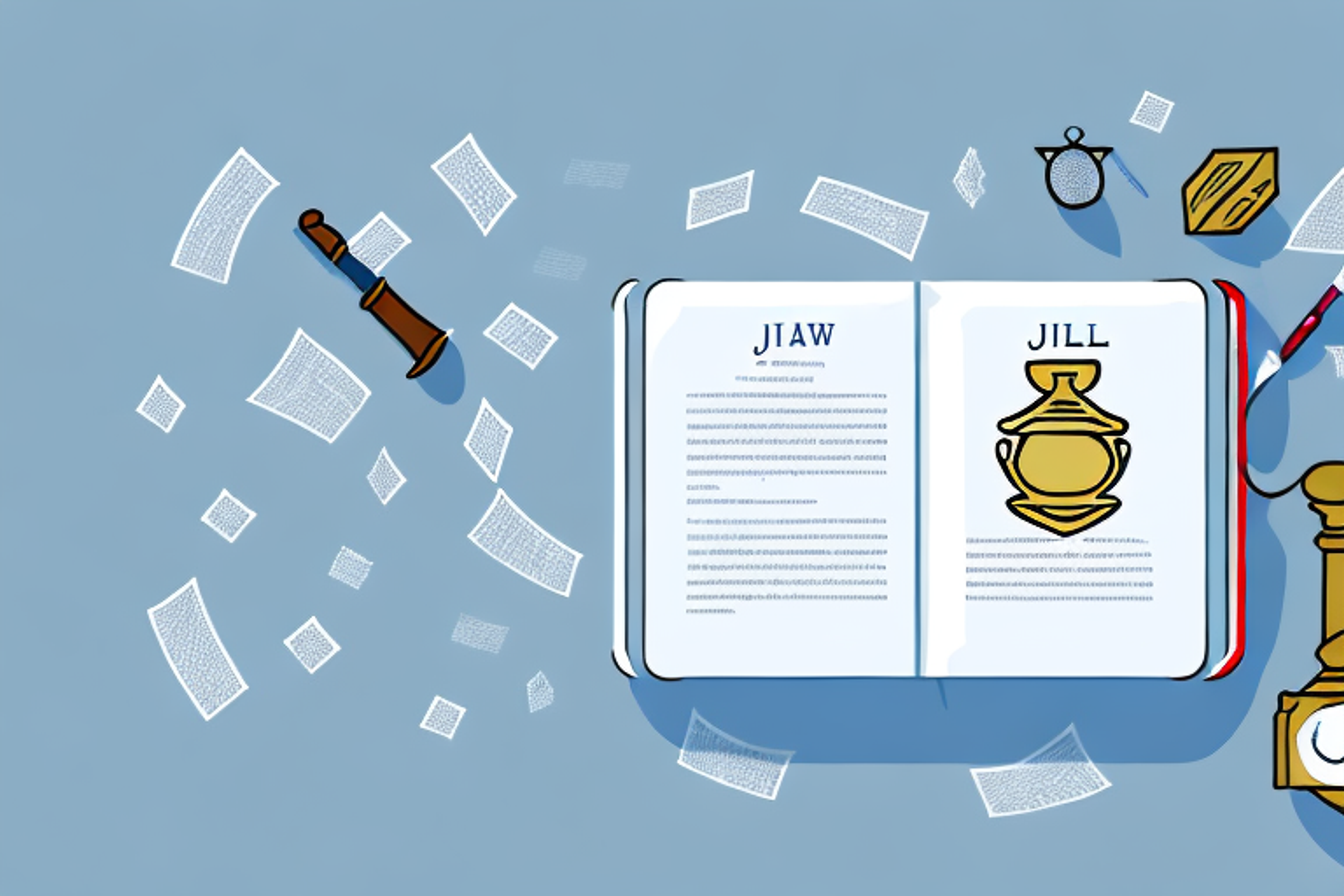Securing Your Future: A Comprehensive Guide on How to Land an Internship While in Law School
Looking to secure your future in law? Our comprehensive guide provides valuable tips and tricks on how to land an internship while in law school.
Posted April 3, 2025

Table of Contents
If you are a law student, you’re not just preparing for your mid-terms and final exams. You are also trying to secure your future by landing a highly valuable internship in your field of interest. Internships offer law students an opportunity to gain the necessary exposure and practical skills for the legal profession, and they are highly valued by employers. However, with so many students seeking to land the same positions, it can be a daunting task to secure your ideal internship. This guide will give you a comprehensive understanding of how to land an internship while in law school, and pave the way for a bright future in the legal profession.
Why Interning in Law School is Crucial for Your Career
Landing an internship during your law school years is crucial in building your legal career. As a law student, interning will enable you to gain valuable practical exposure, hands-on experience and a network you can leverage on after graduation. With law being such a competitive field, having an internship on your resume will make you stand out from other new entrants when applying for jobs. Additionally, an internship offers a glimpse into the actual legal work needed for significant industries such as business, sports, and entertainment, providing valuable insight into various legal fields.
Another benefit of interning during law school is the opportunity to work with experienced lawyers and learn from their expertise. Interning allows you to observe how lawyers handle cases, interact with clients, and navigate the legal system. This firsthand experience can help you develop your own legal skills and gain a better understanding of the legal profession.
Furthermore, internships can often lead to job offers after graduation. Many law firms and companies use internships as a way to identify and recruit talented law students. By interning and demonstrating your skills and work ethic, you may be offered a job upon graduation or be given a strong recommendation for future job opportunities.
Assessing Your Interests: Finding the Right Internship for You
Before you embark on your internship journey, you need to consider what your interests are. Not all internships are created equal, and it’s imperative to intern at a company or firm that aligns with your passions or long-term career goals. You can start by making a list of specific or niche areas of law you find fascinating or seek out mentorship opportunities with lawyers you admire in various fields.
Another important factor to consider when assessing your interests is the type of work environment you thrive in. Do you prefer a fast-paced, high-pressure environment or a more relaxed and collaborative one? This can greatly impact your internship experience and overall job satisfaction.
Additionally, it’s important to think about the skills you want to develop during your internship. Are you looking to improve your research and writing skills, or do you want to gain hands-on experience in a courtroom setting? Knowing what skills you want to gain can help you narrow down your internship options and find the right fit for you.
Researching Potential Internship Opportunities
The process of finding the right internship opportunity starts with researching various firms, organizations, nonprofits, and companies. You can begin by using resources offered by your law school placement office or conducting an online search. Once you’ve identified potential internships, delve deeper and find out more about the company or firm’s culture, the work they do, and whom they serve. This knowledge will prepare you for the interview and give you a head start over the competition.
It is also important to network with professionals in your desired field. Attend career fairs, join professional organizations, and connect with alumni from your law school. These connections can provide valuable insights into potential internship opportunities and may even lead to job offers after graduation. Additionally, consider reaching out to current or former interns at the companies you are interested in to gain a better understanding of their experiences and the skills they developed during their internship.
Building a Strong Resume and Cover Letter to Impress Employers
Your resume and cover letter are essential tools in landing an internship. It would be best to tailor your resume and cover letter to fit the internship you desire and highlight your strengths, interests, and experience. By using a descriptive tone and succinct language, you will impress potential employers, and stand out from the crowd.
When building your resume, it is crucial to include relevant keywords and phrases that match the job description. This will help your resume get past any automated screening systems and increase your chances of getting noticed by the hiring manager. Additionally, consider including any relevant coursework, extracurricular activities, or volunteer work that showcases your skills and experience.
As for your cover letter, it should be personalized and show your enthusiasm for the company and the position. Research the company and mention specific projects or initiatives that interest you. Use the cover letter to explain how your skills and experience align with the job requirements and how you can contribute to the company's success. Remember to proofread your resume and cover letter carefully and have someone else review them before submitting your application.
Networking: The Key to Landing Your Dream Internship
Networking is essential in the legal field, and the same is true when seeking an internship. Reach out to alumni from your law school, attend professional events, and join relevant groups or associations that match your interests. Volunteering or shadowing industry professionals can also open doors and enhance your network.
Another effective way to expand your network is by utilizing social media platforms such as LinkedIn. Create a professional profile and connect with individuals in your desired field. Engage with their posts and share relevant content to establish yourself as a knowledgeable and engaged member of the legal community.
It's important to remember that networking is a two-way street. While it's important to seek out connections and opportunities, it's equally important to offer value to those in your network. Consider how you can assist others in their career goals and offer your skills and expertise when appropriate. Building strong relationships based on mutual respect and support can lead to long-term success in your legal career.
Preparing for the Interview: Tips and Tricks to Ace the Process
Once you’ve secured an interview, it’s essential to prepare thoroughly. Practice answering common interview questions, research the company/firm, rehearse non-verbal communication, and pick a suitable outfit. By being well-prepared and confident during the interview, you will increase your chances of landing the internship position.
Another important aspect of preparing for an interview is to understand the job requirements and responsibilities. This will help you tailor your responses to the interviewer's questions and demonstrate how your skills and experience align with the position. Additionally, it's crucial to have a clear understanding of the company's culture and values, as this will help you determine if it's a good fit for you.
Finally, don't forget to follow up after the interview. Send a thank-you email or note to the interviewer, expressing your appreciation for the opportunity to interview and reiterating your interest in the position. This will help you stand out from other candidates and leave a positive impression on the interviewer.
Navigating Legal Internship Programs and Applications
Many law schools have legal internship programs that you can apply to as a student. You can also apply for internships at specific firms or companies independently. It’s critical to pay attention to internship application deadlines and any specific requirements such as transcript submission, essays, or reference letters. Failure to comply with instructions may result in a rejection before the interview stage.
Additionally, it's important to research the firms or companies you are applying to and tailor your application materials accordingly. This can include highlighting relevant coursework or experiences, as well as demonstrating a strong understanding of the firm's practice areas and values. Networking with alumni or attorneys in the field can also be a valuable tool in securing a legal internship. Remember to always present yourself professionally and follow up with thank-you notes or emails after interviews.
Maximizing Your Time as an Intern: How to Stand Out and Make an Impact
Once you’ve landed your internship, it’s time to shine. Learn as much as you can, ask questions, offer assistance, and take on additional responsibilities when possible. Be proactive in your approach, pay attention to details, follow through on tasks, and seek feedback. Make an effort to connect with people in the organization, establish relationships, and build networks. By demonstrating dedication and a positive attitude, you’ll make a lasting impression.
Another important aspect of maximizing your time as an intern is to take advantage of any training or development opportunities offered by the organization. Attend workshops, seminars, and training sessions to enhance your skills and knowledge. This not only benefits you personally, but also shows your commitment to the organization and your desire to contribute to its success. Additionally, consider taking on a project outside of your regular responsibilities that aligns with your interests and showcases your abilities. This can demonstrate your initiative and creativity, and may even lead to new opportunities within the organization.
Balancing School and Work: Time Management Strategies for Law Students on Internships
Internships may require you to balance a full-time job with your law school coursework. Finding a balance can be challenging, but it’s crucial to maintain your academic performance. You can start with being honest about your workload and capabilities, managing your time effectively, and asking for help when needed. You may need to prioritize your responsibilities, learn how to delegate tasks, and adjust your schedule to ensure you’re meeting all your obligations.
How to Leverage Your Internship Experience for Future Job Opportunities
Completing an internship will give you a competitive advantage when seeking future employment in the legal field. Be sure to use your internship experience in your resume, cover letter, and job interview to show potential employers the skills you gained, the work you did, and the impact made. You can also use your connections and network established during your internship when seeking future job opportunities related to your interests.
Common Mistakes to Avoid When Applying for Legal Internships
When applying for an internship, certain mistakes can cost you a chance at securing your dream internship position. Examples of these common mistakes include submitting an unkempt resume and cover letter, writing a generic or identical application essay for several applications, or applying for internships that you are not genuinely interested in. Other errors include neglecting to proofread your application materials, failing to meet the application deadline, and failing to follow-up on your application. By avoiding these mistakes, you'll be able to position yourself for success in your search for an internship.
By following these steps, you are well equipped to navigate your way to landing an internship in the law field, ultimately securing your future career. Remember to stay focused, persevere through the application process, and never underestimate the power of networking. With determination and hard work, you'll be able to land the perfect internship that aligns with your interests and enhances your legal education!
Read next: What to Do if You Didn't Have an Internship This Summer












